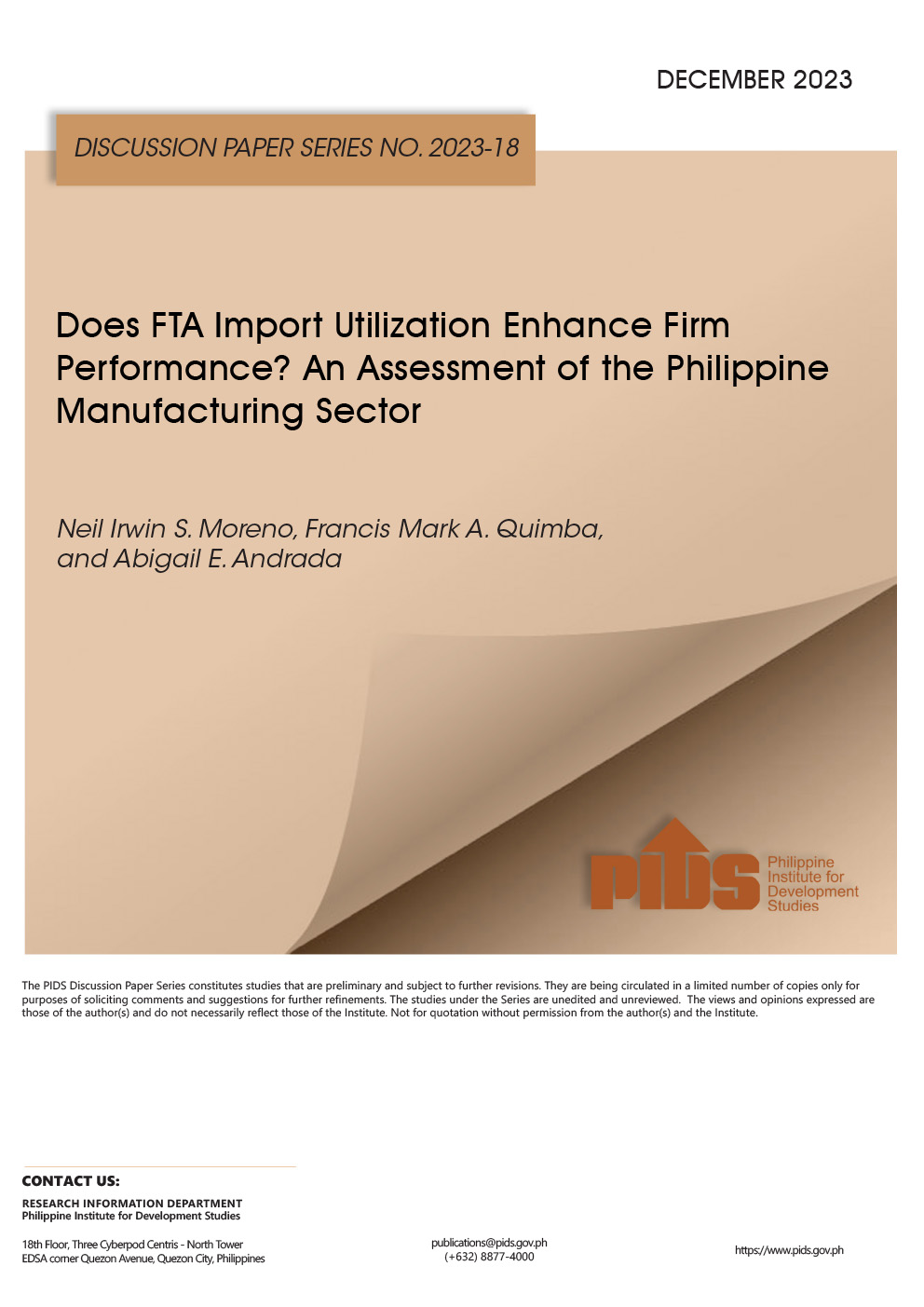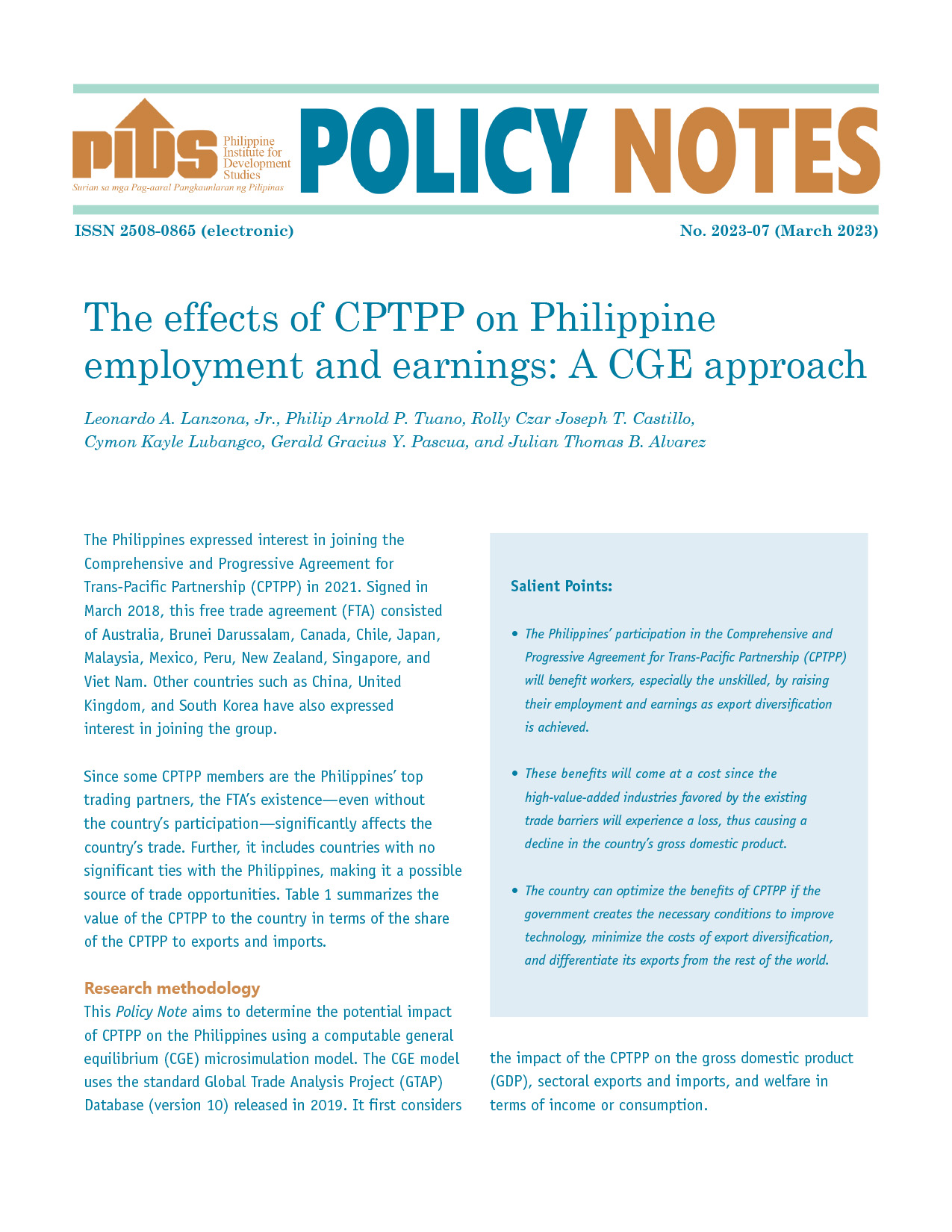This study assessed how utilizing free trade agreements (FTAs) in imports affects the performance of Philippine manufacturing firms. It used recent developments in differences-in-differences (DID) estimation with multiple time periods and variations in treatment timing. This DID method was applied to a rich Philippine microdata set that integrates the annual firm surveys/censuses with import transaction data. The empirical analysis reveals that the FTA import utilization effects varied across different groups and periods; some estimates did not have the expected signs. Overall, productivity gains were limited for importers who started to use FTAs. However, the productivity losses observed from quitting FTA use suggest potential long-run productivity gains obtained by consistent FTA users. The results also confirm the trade-facilitating effects of FTAs, as FTA starters consistently experienced substantial import growth. Meanwhile, quitting use only generated short-term adverse effects on firm imports, implying that some importers might have eventually increased their imports from non-FTA partners. Among others, policymakers must prioritize easing FTA procedures, intensifying firm support mechanisms, and improving data access and monitoring. The country’s ongoing effort in monitoring import surges could also be leveraged to identify sectors that heavily rely on imported intermediate inputs. This could facilitate their participation and upgrading in global value chains.
Comments to this paper are welcome within 60 days from the date of posting. Email publications@pids.gov.ph.
Citations
This publication has been cited 1 time
- Manila Times . 2025. Make better use of FTAs. Manila Times .













